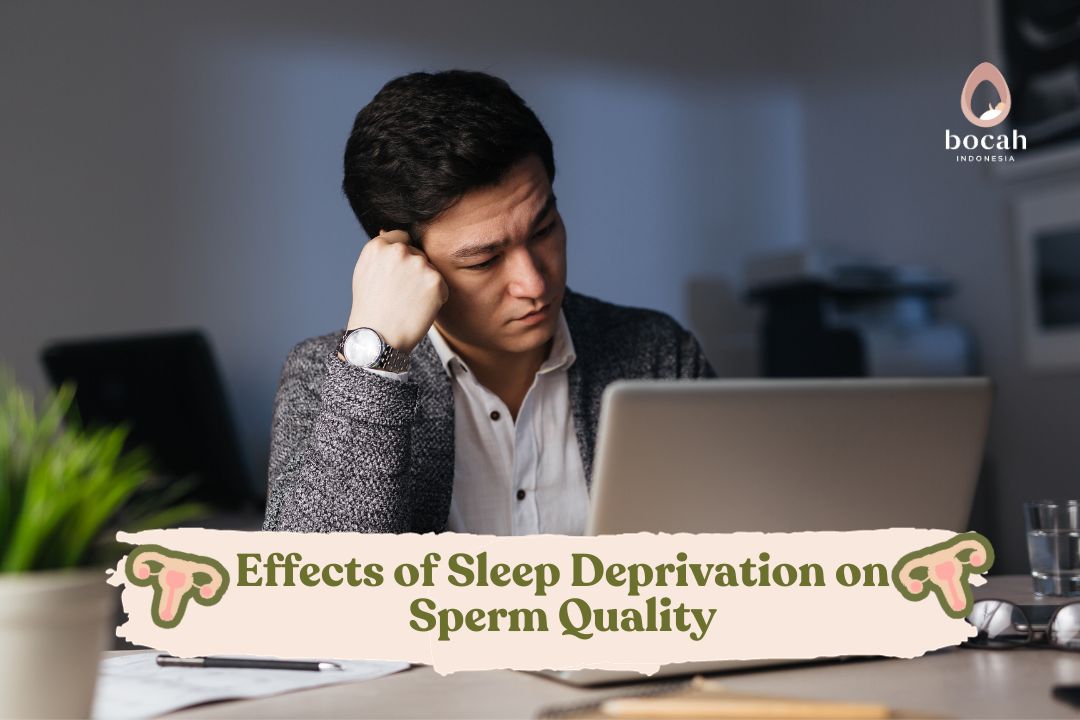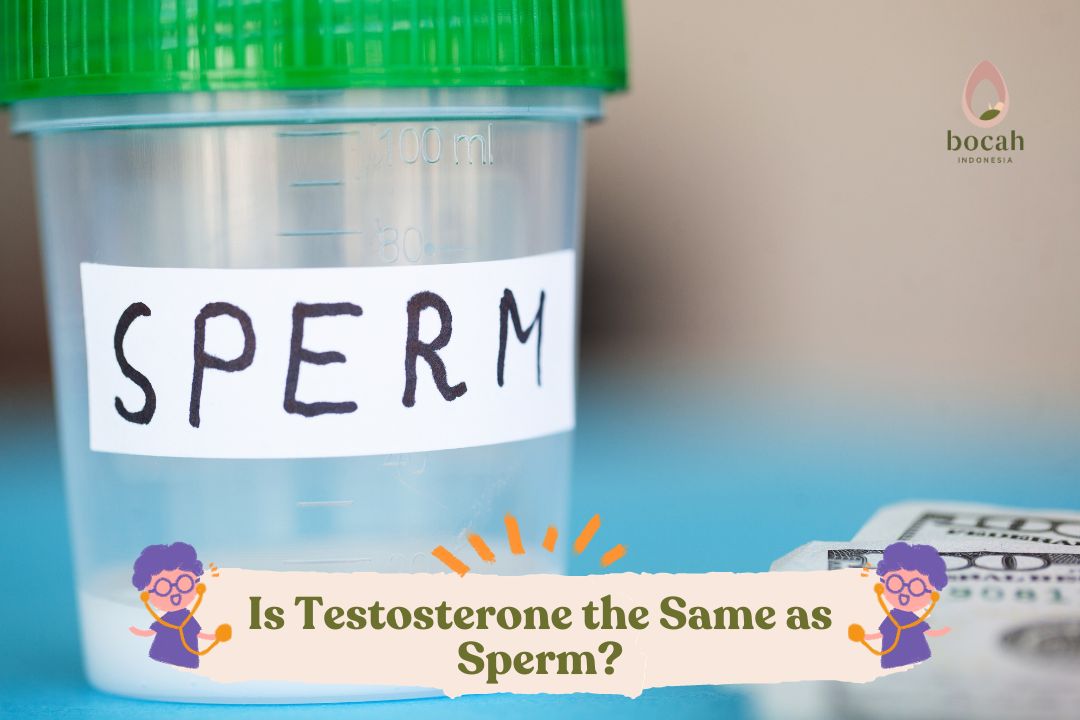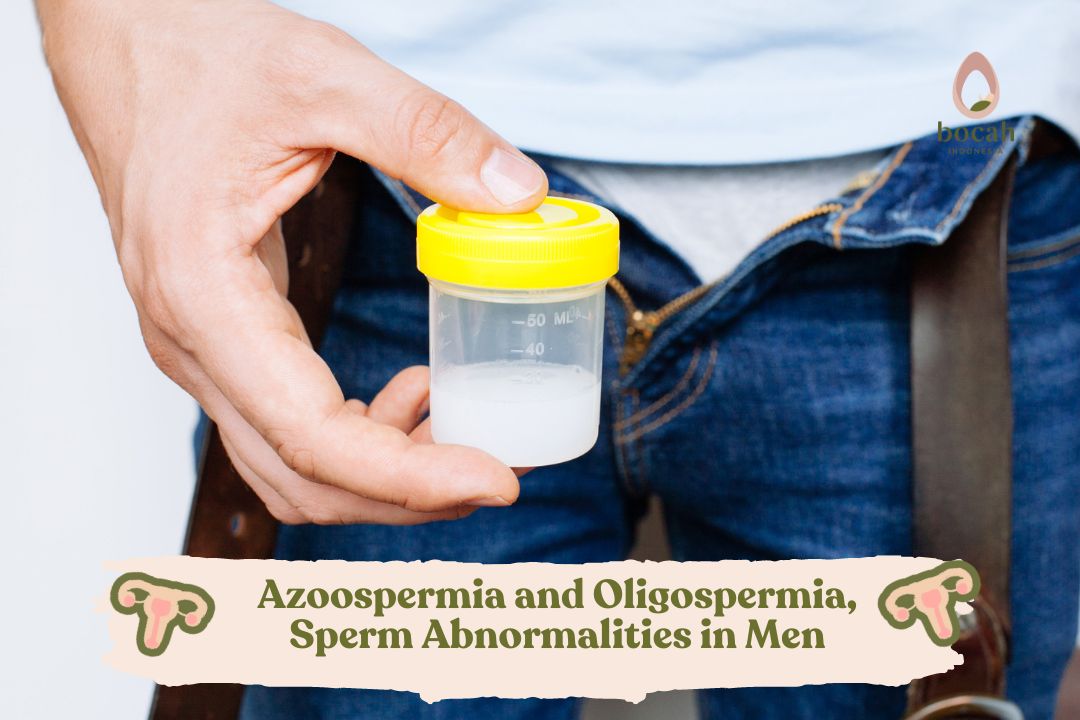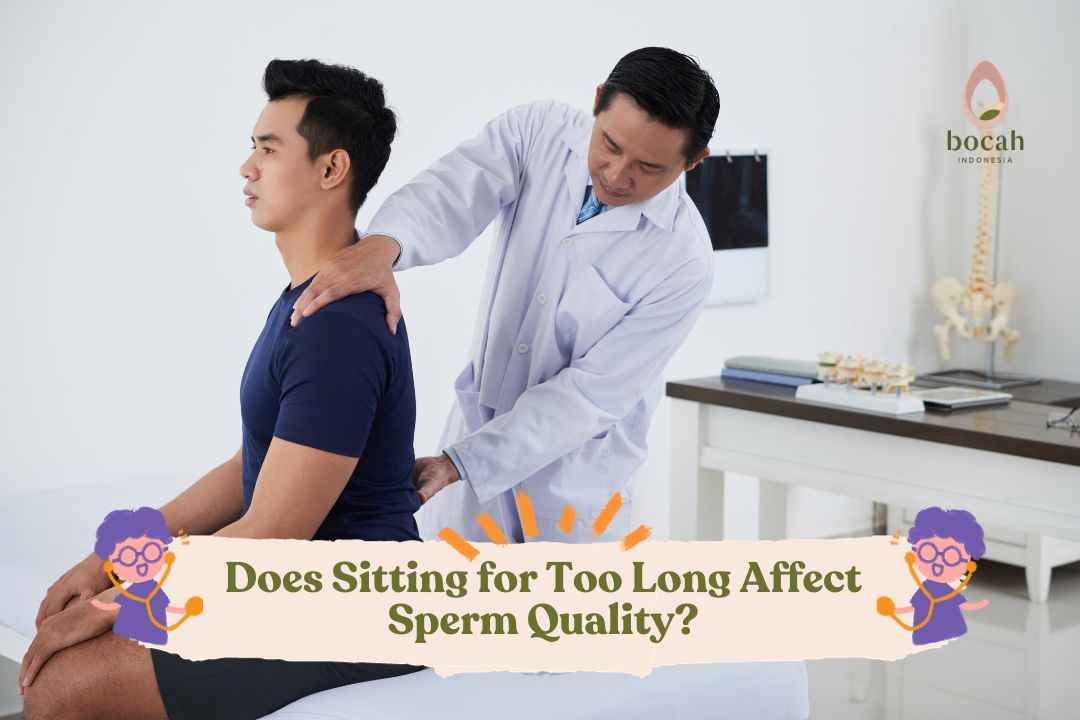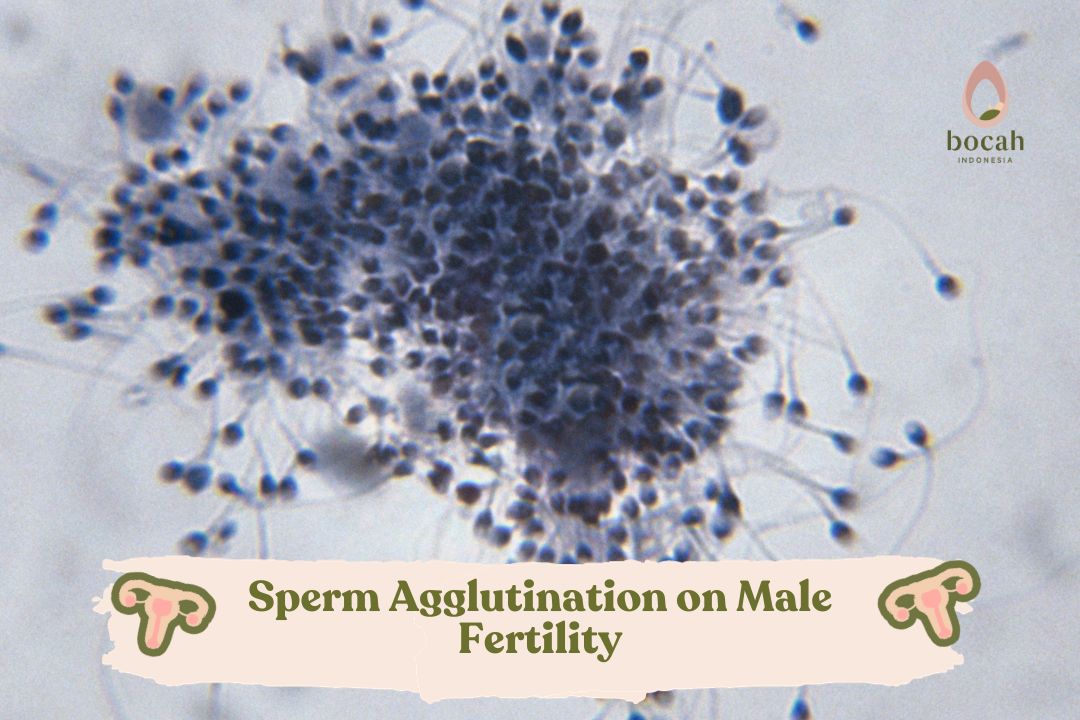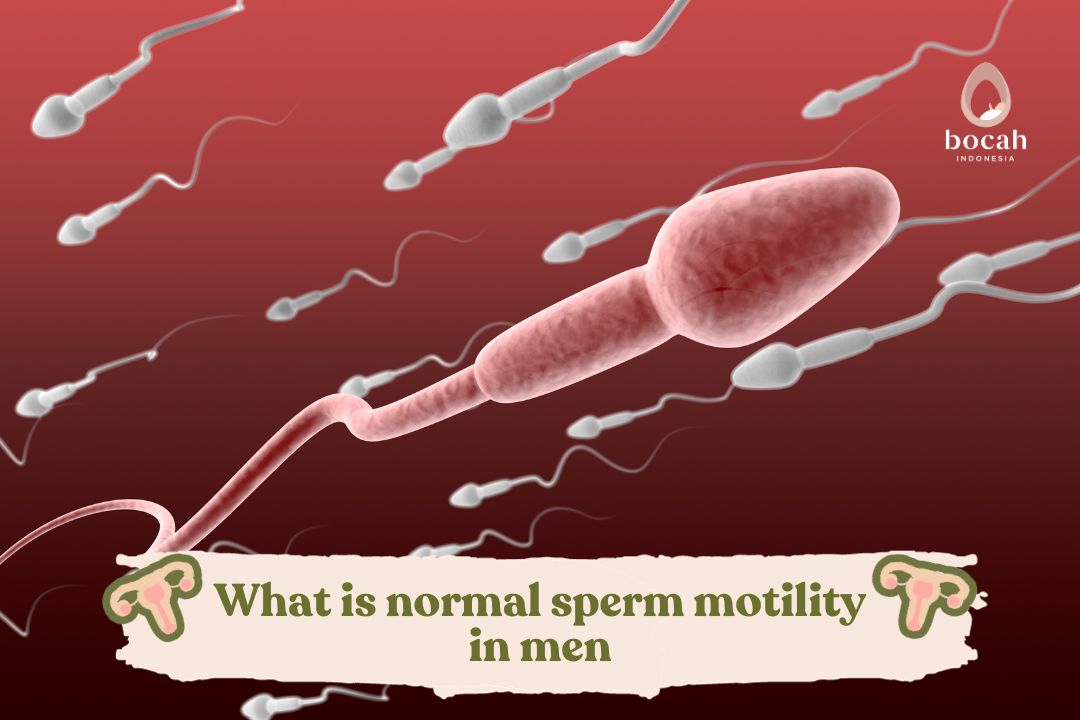Sperm Health and Lack of Sleep, Here’s the Connection

Irregular sleep-wake cycles can disrupt the body’s balance of functions, including Dad’s fertility.
Having a good and quality sleep pattern is important for maintaining physical and emotional health. More importantly, the sufficiency and quality of sleep affect fertility in both women and men. Having a good sleep schedule will refresh the body, brain, and regulate important hormones in the body, including reproductive hormones.
Body Circadian Rhythm and Fertility, Why is it Important?
Circadian rhythm is the term for the body’s biological clock during the 24-hour period that responds to changes in light in the surrounding environment. This rhythm regulates various body functions, such as sleep-wake cycles, metabolism, and the production of various hormones. Circadian rhythm helps humans adapt to environmental changes and optimizes energy levels and expenditures.
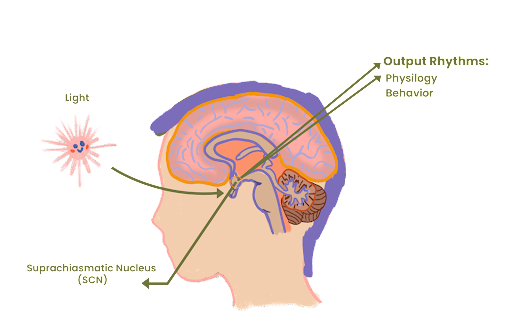
Circadian rhythm is directly regulated by the suprachiasmatic nucleus (SCN) in the brain, a small area in the hypothalamus. SCN is directly influenced by light exposure and affects the production of hormones such as melatonin or cortisol that regulate the sleep-wake cycle.
Tanya Ferly tentang Promil?
Furthermore, the sleep-wake cycle regulated by circadian rhythm will affect the digestive system, body temperature, eating habits, and the release of various other hormones. Therefore, the regularity of this rhythm is important for overall health. Studies have found that disruptions in circadian rhythm are associated with anxiety and depression, concentration disorders, obesity, diabetes, and other conditions, including fertility disorders.
It is known that the release of reproductive hormones, such as estrogen, progesterone, testosterone, and gonadotropin, is influenced by circadian rhythm. In women, circadian rhythm affects the fluctuating production of sex hormones throughout the menstrual cycle. In men, circadian rhythm affects testosterone levels throughout the day. Testosterone levels usually increase during sleep and peak around 8 a.m. After that, it begins to decline and reaches its lowest levels around 8 p.m. Good sleep patterns will facilitate this normal testosterone production cycle.
Lack of Sleep Decreases Sperm Health
Disruption of circadian rhythm has been found to affect reproductive function in women working in shift. Studies report that women who work night shifts are at a higher risk of experiencing irregular menstruation. In men, irregular sleep patterns or lack of sleep can disrupt circadian rhythm, and subsequently affect sperm health.
In 2017, a clinical trial was conducted on 981 healthy men to determine the relationship between lack of sleep and sperm health and quality. The men were divided into groups based on two factors, namely bedtime and sleep duration.
It was found that both short sleep duration (6 hours or less) and long sleep duration (9 hours or more), as well as late bedtime (past 10 p.m.), were associated with poor sperm quality. Specifically, in terms of count, motility (movement), and survival ability. The production of antisperm antibodies (ASA) also increased significantly in men with short sleep duration. Antisperm antibodies are a type of immune cells that mistakenly recognize sperm as foreign and harmful. Thus, ASA will attack sperm and trigger infertility.
A study by Wise et al. in 2018 found that sleeping for 7-8 hours a day is best for sperm health. From 700 couples followed for 1 year, researchers found that the likelihood of pregnancy in women whose partners slept less than 6 hours was 31 percent smaller than those whose partners slept between 7 to 8 hours a day. Interestingly, the chances of pregnancy were also lower (49 percent) in women whose partners slept 9 hours or more a day.
A study in Denmark in 2020 further reinforced the findings of previous studies. Out of 104 couples undergoing fertility treatment, it was found that normal sperm quality was more common in men with earlier bedtimes (before 10:30 p.m.), compared to those with typical bedtimes (10:30-11:29 p.m.) and late bedtimes (11:30 p.m. and later). Normal sperm quality was also more common in men with sleep durations between 7.5 to 8 hours compared to those with shorter sleep durations (<7.5 hours).
Lack of Sleep Triggers Inflammation Processes
A study on 50 male students in 2016 found that markers of inflammation significantly increased in men with sleep durations of less than 6 hours, late bedtime (past midnight), and poor sleep quality. These markers of inflammation— including cytokines, interleukin-6, and C-reactive protein—typically increase in individuals at risk of heart disease and diabetes.
Although this inflammation can be caused by other factors such as stress, smoking, or obesity, studies indicate that lack of sleep plays a role in the inflammatory process. This inflammation process then affects sperm function and production.
Lack of Sleep and Male Hormone Production
The balance of male reproductive hormones, such as testosterone, follicle-stimulating hormone (FSH), and luteinizing hormone (LH), is crucial in the process of sperm production. If testosterone levels are too high or too low, it will affect sleep. Conversely, lack of sleep and sleep disturbances such as sleep apnea (breathing pauses during sleep) can disrupt normal testosterone production.
In a study on healthy young men, it was found that daytime testosterone levels decreased by 10-15 percent in subjects who slept less than 5 hours a day for a week compared to when their sleep time was sufficient. This pattern was also found in elderly men. A study on men aged 64-74 found that the duration of sleep the previous night was significantly correlated with testosterone levels in the morning.
Building a Healthy Sleep Pattern
Now, Dads know that circadian rhythms and good sleep patterns go hand in hand with male fertility. The key is to get quality sleep for 7-8 hours a day without disturbance. Some tips that can be done to improve Dad’s sleep quality include:
- Regularly exercise outdoors. At least, expose yourself to sunlight for 15 minutes in the morning. This will wake Dad up and reset the body’s circadian rhythm.
- Manage stress as much as possible.
- Consume a healthy and balanced diet. This will also improve sperm quality.
- Avoid consuming caffeine within 5 hours before bedtime, and avoid alcohol consumption within 3 hours before bedtime.
- Eliminate light in the bedroom during sleep and starting 30 minutes before bedtime.
- Create a bedtime routine that prepares Dad’s mind for sleep. Following this routine will help the body fall asleep naturally faster and stay asleep throughout the night. Recommended activities include reading books, listening to calming music, or talking with a partner. Avoid watching TV or using gadgets 30 minutes before bedtime. These devices emit blue light that can disrupt circadian rhythms.
- Try to have a consistent sleep schedule. Avoid staying up late or trying to “catch up” on weekends. If Dad’s work schedule allows, maintain a consistent sleep schedule throughout the week, including on weekends.
If Dad and his partner are trying to conceive, start by improving unhealthy sleep patterns first. Sperm matures in about 72 days, so it takes about 2-3 months to achieve better sperm quality. However, remember that sleep is just one factor that affects Dad’s fertility. To better understand Dad’s current fertility status and how to improve it, consult a doctor and undergo a comprehensive fertility evaluation.
This article has been medically reviewed by Dr. Fiona Amelia, MPH
Source:
- Du CQ, Yang YY, Chen J, Feng L, Lin WQ. Association between sleep quality and semen parameters and reproductive hormones: a cross-sectional study in Zhejiang, China. Nature and Science of Sleep. 2020 Jan 9:11-8.
- Hvidt JE, Knudsen UB, Zachariae R, Ingerslev HJ, Philipsen MT, Frederiksen Y. Associations of bedtime, sleep duration, and sleep quality with semen quality in males seeking fertility treatment: a preliminary study. Basic and clinical andrology. 2020 Dec;30:1-9.
- Liu MM, Liu L, Chen L, Yin XJ, Liu H, Zhang YH, Li PL, Wang S, Li XX, Yu CH. Sleep deprivation and late bedtime impair sperm health through increasing antisperm antibody production: a prospective study of 981 healthy men. Medical science monitor: international medical journal of experimental and clinical research. 2017;23:1842.
- Sciarra F, Franceschini E, Campolo F, Gianfrilli D, Pallotti F, Paoli D, Isidori AM, Venneri MA. Disruption of circadian rhythms: a crucial factor in the etiology of infertility. International journal of molecular sciences. 2020 May 30;21(11):3943.
- Wise LA, Rothman KJ, Wesselink AK, Mikkelsen EM, Sorensen HT, McKinnon CJ, Hatch EE. Male sleep duration and fecundability in a North American preconception cohort study. Fertility and sterility. 2018 Mar 1;109(3):453-9.


